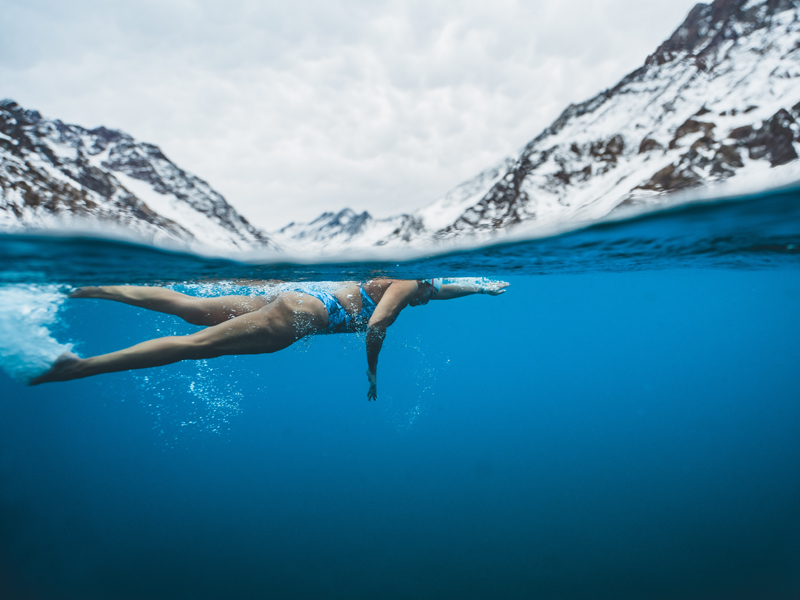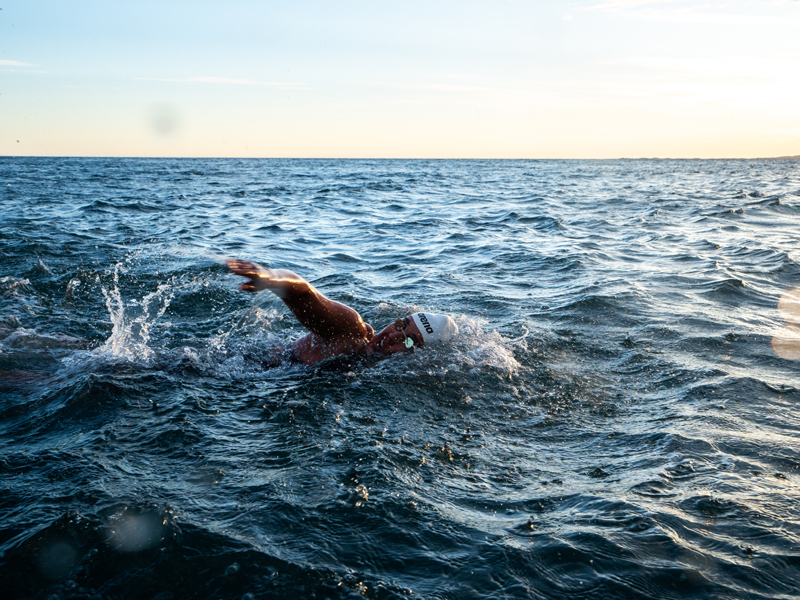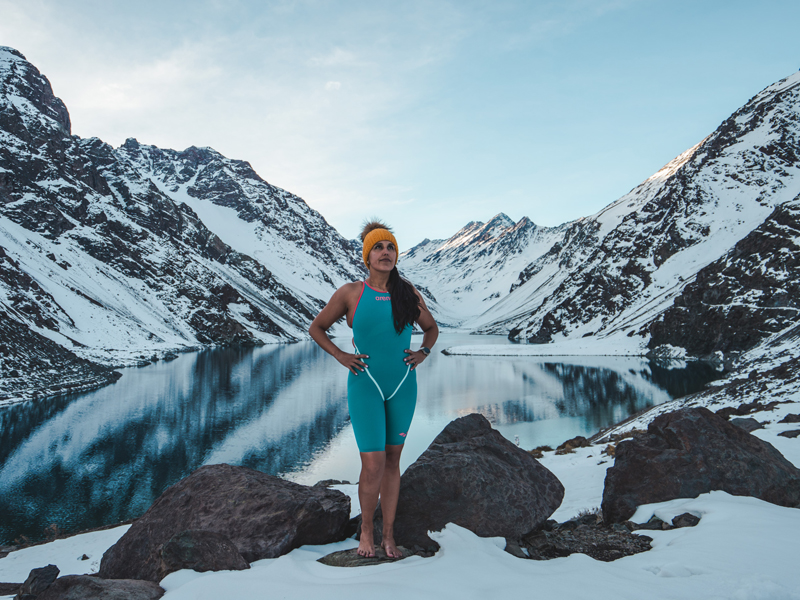Swimming in Cold Water: Wise or Foolish?
Cold water swimming can be dangerous if you’re not acclimatised, but if you train, your body will adapt and you may be able to enjoy health benefits.
A New Year’s Day ‘polar bear plunge’ to raise funds for charity in Canada. An ice swim to celebrate the Epiphany in Russia. A dip in cold water to cool off after a sauna session in Finland. It seems like an awful lot of people are voluntarily subjecting themselves to cold water. And in many cases they aren’t just jumping in and out – they’re staying in to swim.
Photo credits: @barbarehlla_h
Cold water swimming is growing increasingly popular. Swim clubs around the world are organizing winter swims, and competitions are offered at all levels.
What’s the attraction of an activity that seems like it should be downright miserable? Cold-water swimmers say it invigorates them and makes them feel more alive. The endorphin rush gives them a natural high, and even just a short swim in the morning can keep them feeling energetic all day long.
Proponents of cold water swimming cite many other health benefits as well, though most have not been extensively researched. Evidence suggests that regular cold water swimming may potentially strengthen the immune system, boost the metabolism, improve circulation, tone skin, and increase libido.
The major danger in jumping into cold water suddenly is the physiological cold shock response that causes an involuntary gasp for breath, often followed by several minutes of hyperventilation. Obviously, if your head is under water or you’re surrounded by big waves, you risk drowning if you’re physically unable to hold your breath. Your heart rate and blood pressure go up suddenly as well, which is dangerous if you have coronary artery disease.

Photo credits: @barbarehlla_h
After the initial shock, you’ll be able to swim for a while, but your muscles will begin to weaken as hypothermia sets in and your body moves blood away from your extremities toward your core. The speed at which hypothermia progresses depends on the water temperature, your body fat, how much of your body is submerged and other variables.
So swimming in cold water is dangerous, right? Actually, your body is remarkably adaptable, and you can acclimatise yourself to the cold temperatures with a little training. Acclimatising allows you to overcome most of the negative physiological responses while maintaining the benefits. And, of course, you don’t need to go the full ice swimming route — swimming in water that is merely cold can be invigorating as well.
Photo credits: @barbarehlla_h
If you’re interested in taking up cold water swimming, do see your doctor first, as this is not a sport that’s recommended for anyone with underlying heart disease or untreated hypertension. Then, when you get the go-ahead, start gradually. If you live near a river, a lake or the sea, the most painless way to acclimatise is to start swimming regularly in the summer while the water is relatively warm and then stick with it as the water cools through the autumn and winter. The other option, though, is to gradually build up the amount of time you spend in the water. (Taking cold showers can help build up your tolerance too.) You should swim at least once a week, and more often if you can.
Be conservative when you’re just starting out. If you’re swimming in open water, stay near the shore, make sure you’re fully hydrated and follow all the usual safety precautions.
If you can get over the initial mental hurdle, you may find yourself hooked…and thinking about the 2024 Winter Swimming World Championships in Estonia (Tallinn).
Have you tried swimming in cold water? What did you think?









